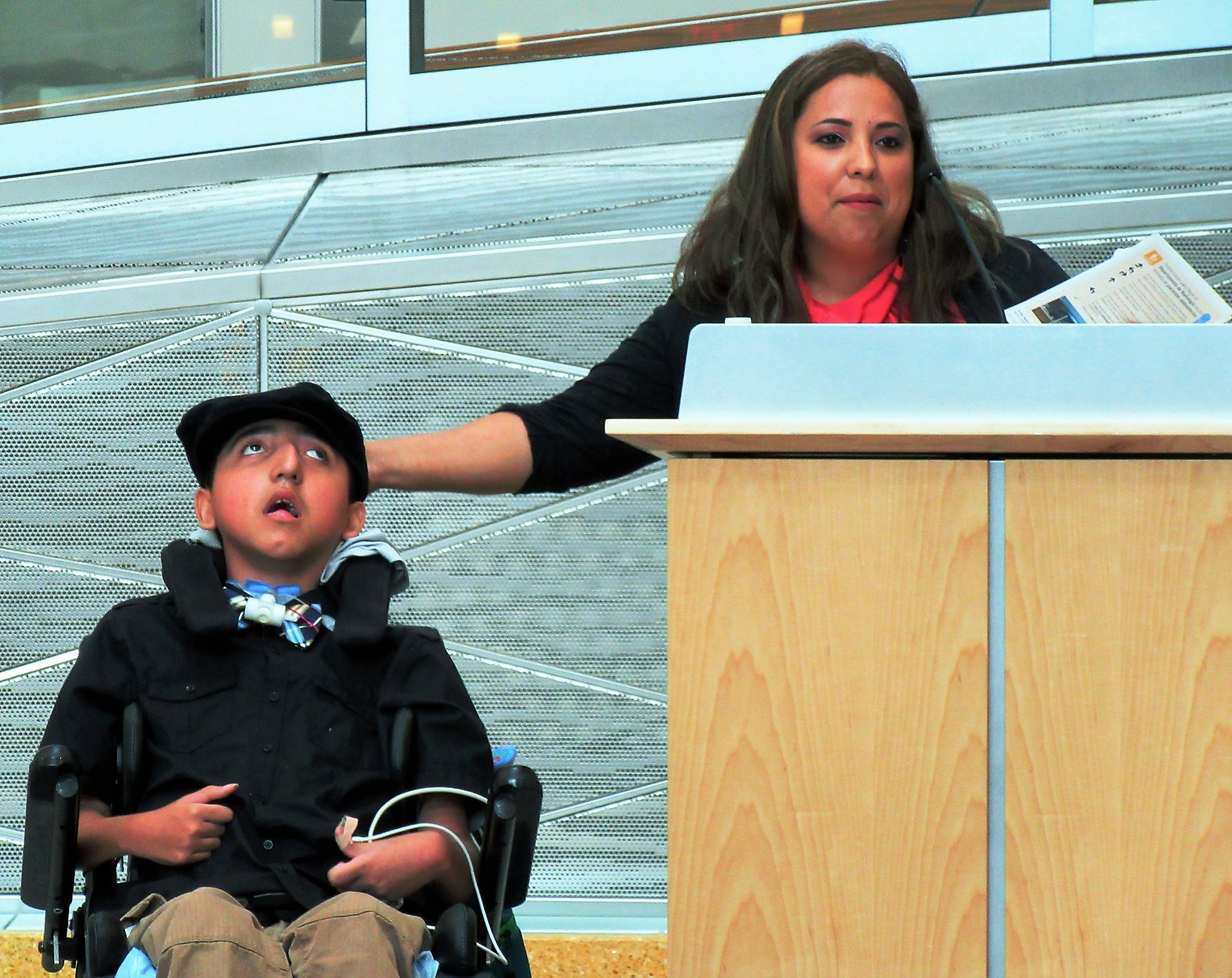DHSS Releases Delaware’s Plan for Managing the Health Care Needs of Children with Medical Complexity
Delaware Health and Social Services | Newsroom | Date Posted: Wednesday, May 30, 2018
Delaware Health and Social Services | Newsroom | Date Posted: Wednesday, May 30, 2018

NEW CASTLE (May 30, 2018) – As a way to better support the needs of children with medical complexity and their families, the Division of Medicaid and Medical Assistance this week released Delaware’s Plan for Managing the Health Care Needs of Children with Medical Complexity and announced that stakeholders will continue work to develop longer-term strategies for this fast-growing population of children.
The Department of Health and Social Services received special instructions from the General Assembly in the Fiscal Year 2018 budget bill to develop and publish a comprehensive plan for managing the health care needs of Delaware’s children with medical complexity. These children have intensive health conditions, are medically fragile, and require extensive health care services and a coordinated care delivery system.
Nearly 20 percent of all U.S. children up to age 18 have a chronic and/or complex health care need such as asthma, diabetes, autism or spina bifida that requires physical and behavioral health care services and supports. A smaller group – about 4 percent, or 3 million nationwide – are estimated to be children with medical complexity. A child is considered medically complex if she or he falls into two or more of these categories:
“I was very impressed at the willingness of all involved to step outside their traditional roles and engage in open and meaningful dialogue in an effort to better understand the needs and challenges we face in effectively serving children with medical complexities,” said Steve Groff, director of DHSS’ Division of Medicaid and Medical Assistance (DMMA).
Groff offered particular thanks to parents who served on Children with Medical Complexity (CMC) Steering Committee and shared their family experiences. “They shared their personal stories and provided a window to their world that was not only educational, but also very impactful,” he said.
The goals of the steering committee, which began its work in November 2017, included identifying the population, assessing access to health care services, evaluating models of care and analyzing the relationships between insurance payers.
Among the recommendations of the steering committee, made up of parents, health care providers, insurance representatives, and state agencies’ officials, are:
The Children with Medical Complexity Steering Committee also delivered its plan to the General Assembly as required in the budget legislation.
To read or download the plan:
http://dhss.delaware.gov/dhss/dmma/files/de_plan_cmc.pdf
Keep up to date by receiving a daily digest email, around noon, of current news release posts from state agencies on news.delaware.gov.
Here you can subscribe to future news updates.
Delaware Health and Social Services | Newsroom | Date Posted: Wednesday, May 30, 2018

NEW CASTLE (May 30, 2018) – As a way to better support the needs of children with medical complexity and their families, the Division of Medicaid and Medical Assistance this week released Delaware’s Plan for Managing the Health Care Needs of Children with Medical Complexity and announced that stakeholders will continue work to develop longer-term strategies for this fast-growing population of children.
The Department of Health and Social Services received special instructions from the General Assembly in the Fiscal Year 2018 budget bill to develop and publish a comprehensive plan for managing the health care needs of Delaware’s children with medical complexity. These children have intensive health conditions, are medically fragile, and require extensive health care services and a coordinated care delivery system.
Nearly 20 percent of all U.S. children up to age 18 have a chronic and/or complex health care need such as asthma, diabetes, autism or spina bifida that requires physical and behavioral health care services and supports. A smaller group – about 4 percent, or 3 million nationwide – are estimated to be children with medical complexity. A child is considered medically complex if she or he falls into two or more of these categories:
“I was very impressed at the willingness of all involved to step outside their traditional roles and engage in open and meaningful dialogue in an effort to better understand the needs and challenges we face in effectively serving children with medical complexities,” said Steve Groff, director of DHSS’ Division of Medicaid and Medical Assistance (DMMA).
Groff offered particular thanks to parents who served on Children with Medical Complexity (CMC) Steering Committee and shared their family experiences. “They shared their personal stories and provided a window to their world that was not only educational, but also very impactful,” he said.
The goals of the steering committee, which began its work in November 2017, included identifying the population, assessing access to health care services, evaluating models of care and analyzing the relationships between insurance payers.
Among the recommendations of the steering committee, made up of parents, health care providers, insurance representatives, and state agencies’ officials, are:
The Children with Medical Complexity Steering Committee also delivered its plan to the General Assembly as required in the budget legislation.
To read or download the plan:
http://dhss.delaware.gov/dhss/dmma/files/de_plan_cmc.pdf
Keep up to date by receiving a daily digest email, around noon, of current news release posts from state agencies on news.delaware.gov.
Here you can subscribe to future news updates.